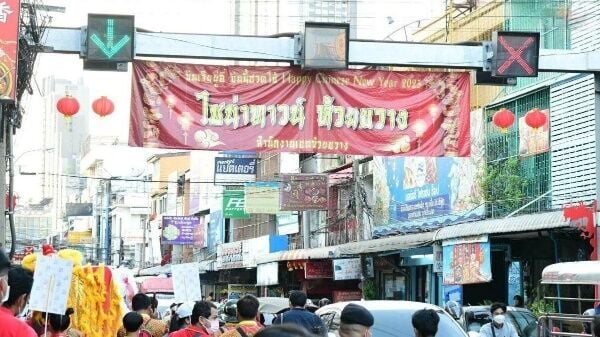Huai Khwang’s food scene hit by strict regulations, eateries close

Recent developments in Huai Khwang district have seen a wave of closures across restaurant businesses including hotpot and shabu eateries.
According to the Huai Khwang District Office, scrutiny has led to the discovery that many Chinese restaurants were operating without the necessary permits.
The district office mandated that all eateries obtain proper licensing but this proved challenging for some. Compliance required meeting various conditions, such as installing grease traps and emergency fire exits. Some restaurant owners found the bureaucratic process overly complex and restrictive, particularly those renting their properties who faced structural limitations that made it unfeasible to meet the standards for restaurant operations.
Consequently, about 30%, or 10 of the approximately 40 restaurants on Pracharat Bamphen Road, have shut down. Most of these were hot pot and shabu-shabu venues that had invested 2 to 3 million baht each.
Restaurants that met the standards had the opportunity to renovate and apply for the required permits. Non-compliance, however, would result in being ordered to close or fined daily, with penalties ranging from 20,000 to 50,000 baht.
The closures have had a significant impact on the district’s culinary landscape, with the once-thriving hot pot and shabu-shabu joints now grappling with the realities of regulatory compliance, reported KhaoSod.
Last year, the Huai Khwang district’s survey revealed the challenges local businesses faced in adapting to the new regulations. The district office’s enforcement of licensing has led to a considerable number of restaurant closures, altering the dynamic of a district once famous for its food offerings.
In related news, a composite task force composed of representatives from 15 different government entities descended upon six Chinese eateries in the Naka Market area of Wichit, Phuket on February 20. Alarmingly, three instances of law infringement were uncovered in the process, including one restaurant that was found to be operating without a proper licence. The operation’s primary goal was to target high-risk groups to combat and address human trafficking issues.
Latest Thailand News
Follow The Thaiger on Google News:


























